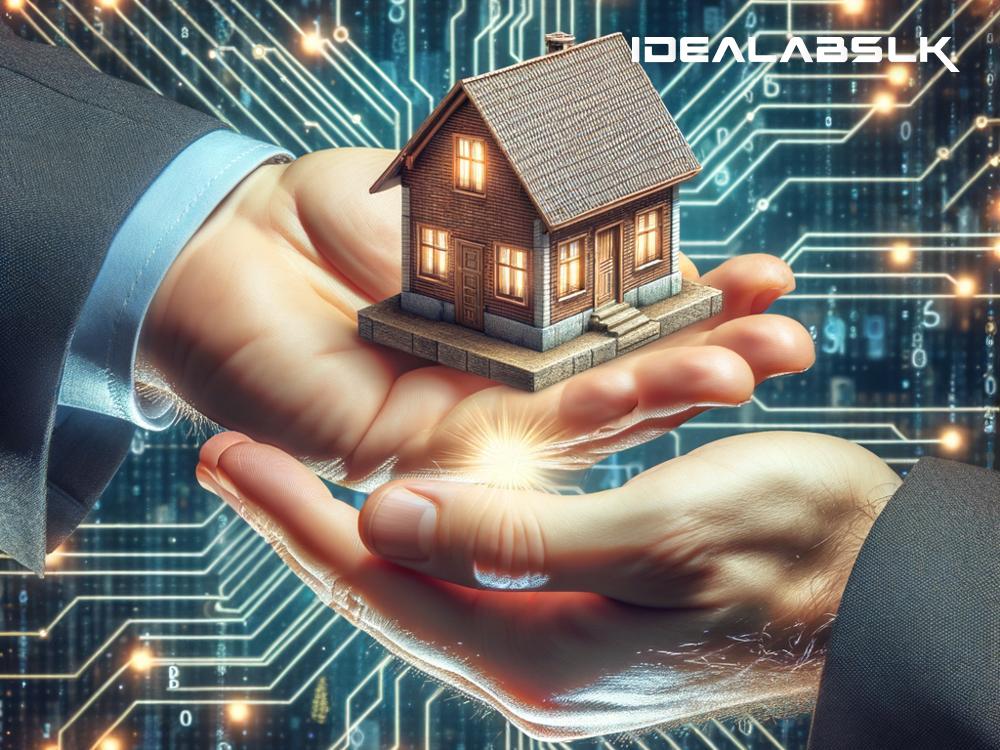Unlocking the Future: How Blockchain is Transforming Real Estate Ownership Transfers
The world of real estate, with its historic buildings, ancient land rights, and dusty paper trails, may not be the first thing that springs to mind when you think of cutting-edge technology. However, blockchain, a tech buzzword that's been reshaping industries far and wide, is now making waves in the realm of real estate. This breakthrough technology, best known for powering cryptocurrencies like Bitcoin, is poised to revolutionize how property ownership transfers are handled, offering a more secure, efficient, and transparent process. But how exactly does this work, and what benefits does blockchain offer to the real estate world? Let's demystify this intricate technology and explore its potential in simplifying real estate transactions.
The Basics of Blockchain
At its core, blockchain is a digital ledger - a way of recording information that is difficult or near impossible to hack, change, or cheat. This digital ledger consists of 'blocks' of data that are securely linked together using cryptography. Imagine it as a chain of digital "blocks," each securely storing data about transactions, including the exchange of property. Once a piece of information is recorded on the blockchain, it becomes a permanent part of this digital chain, visible for all to see but protected against tampering.
This innate security and transparency make blockchain an intriguing solution for many industries, but it's in the complex world of real estate transactions that these qualities shine brightest.
Simplifying the Transaction Process
Traditionally, transferring property ownership is a process fraught with paperwork, middlemen, and plenty of opportunities for errors. It involves a multitude of steps, including verifying the property’s history, ensuring there are no liens against it, and securely transferring the title from seller to buyer. This process is not only time-consuming but can also be expensive and stressful.
Enter blockchain. By moving these transactions onto a blockchain system, the need for some of the traditional middlemen — such as certain legal and title services — can be reduced or even eliminated. This simplification can drastically cut down on the time and cost involved in transferring property, making the real estate market more accessible and efficient.
Enhancing Security and Transparency
One of the biggest advantages of using blockchain for real estate transactions lies in the unparalleled level of security and transparency it offers. Every transaction on the blockchain is recorded in a way that is permanent and immutable. This means that once the details of a real estate transfer are entered into the blockchain, they cannot be altered or deleted. This creates a tamper-proof record of ownership history for every property on the blockchain, significantly reducing the risk of fraud.
Moreover, because the blockchain is essentially a decentralized system — not stored in any one location but distributed across numerous computers — it's incredibly difficult for hackers to compromise. This distributed nature of the technology provides an additional layer of security to real estate transactions.
The Future of Real Estate on the Blockchain
While the implementation of blockchain in real estate is still in its early stages, the potential benefits are significant. In the future, we might see a world where all property transactions are carried out on blockchain platforms. This would not only streamline the buying and selling process but also provide a level of transparency and security that is currently unheard of in the real estate industry.
For buyers and sellers, this could mean faster transactions, reduced costs, and a greater sense of security. For the industry as a whole, blockchain could lead to more efficient markets, increased trust among participants, and a reduction in fraud and disputes. It's a win-win scenario that could transform real estate as we know it.
Embracing A Digital Tomorrow
As our world becomes increasingly digital, the integration of technologies like blockchain into traditional sectors such as real estate is not just inevitable but necessary. By embracing these innovations, we can unlock a future where real estate transactions are not only simpler and faster but also more secure and transparent for everyone involved.
A fully digitized real estate market powered by blockchain might still be on the horizon, but it's a vision that promises to reshape our understanding and handling of property ownership. As we move forward, it's exciting to think about how this groundbreaking technology will continue to break down barriers and pave the way for a more accessible, efficient, and secure real estate industry.
In simple English, blockchain is about to give the ancient practice of buying and selling land a modern makeover, making it easier, safer, and faster for everyone. And that's a change we can all look forward to.

